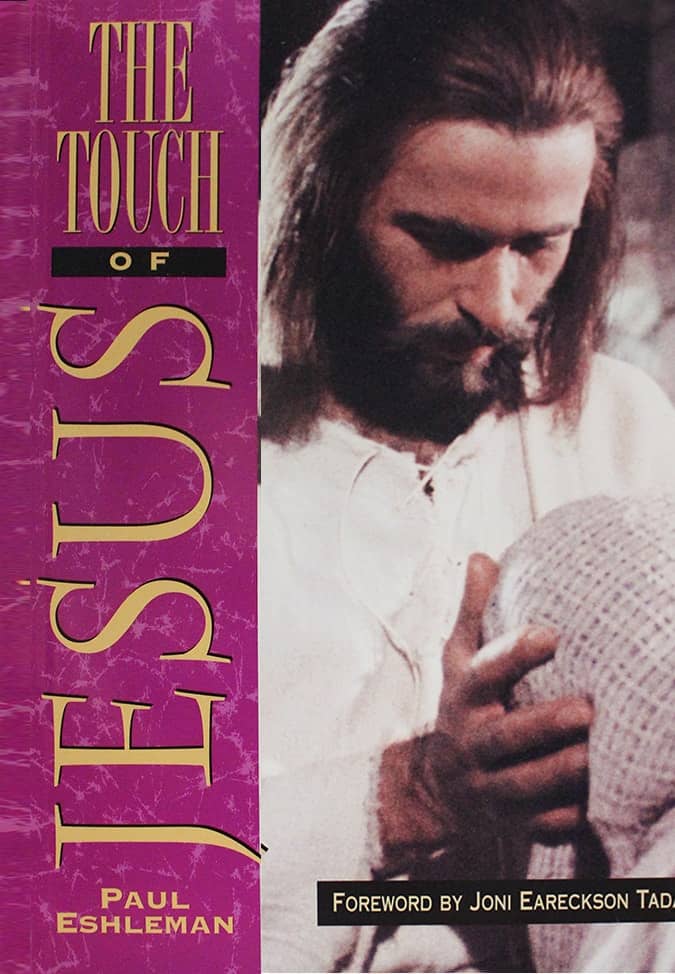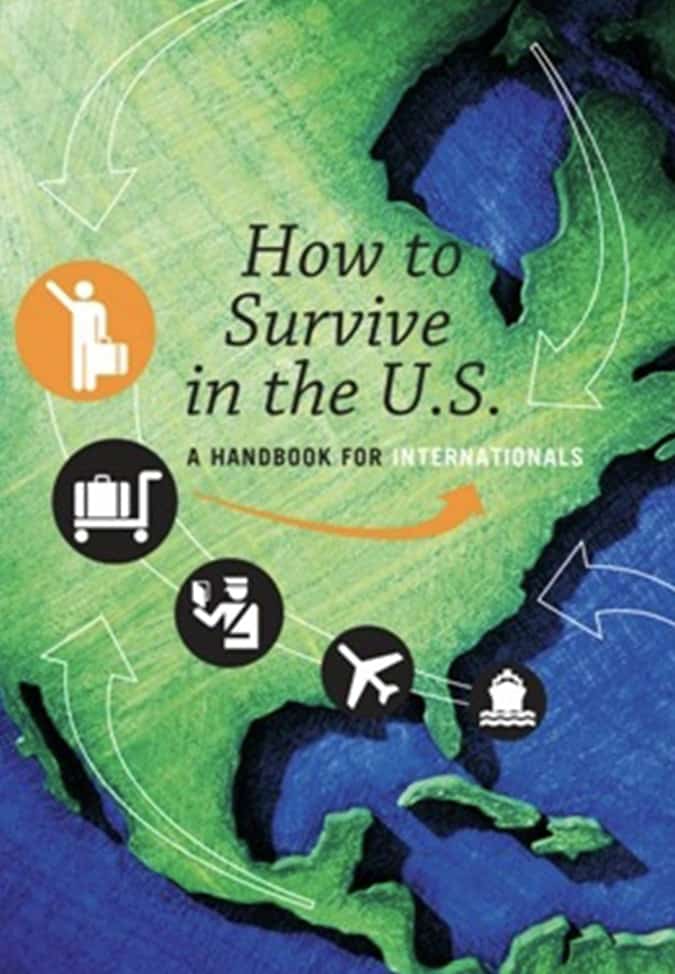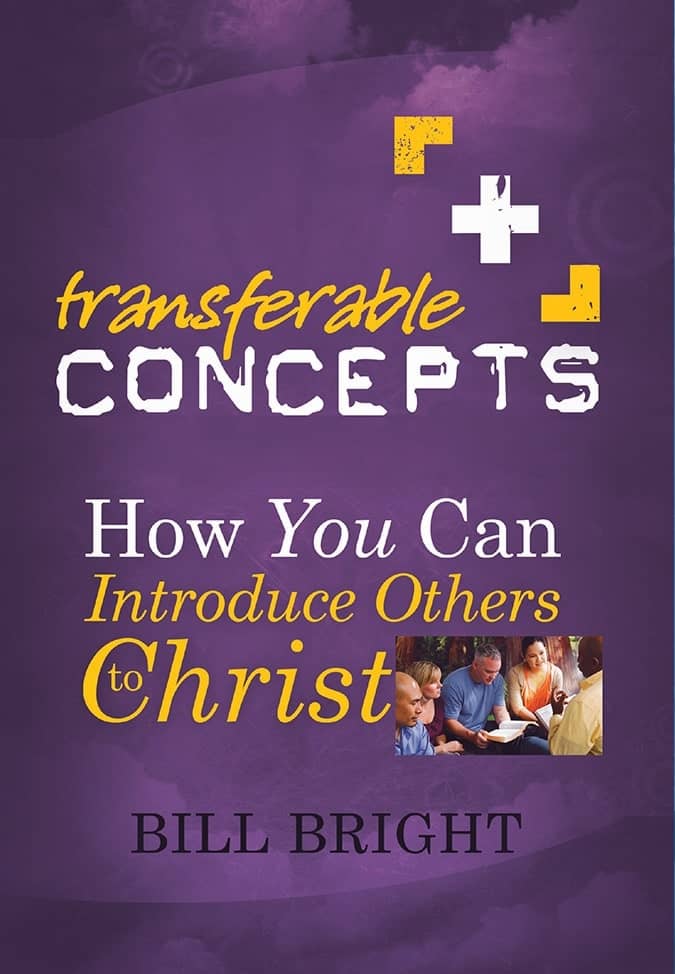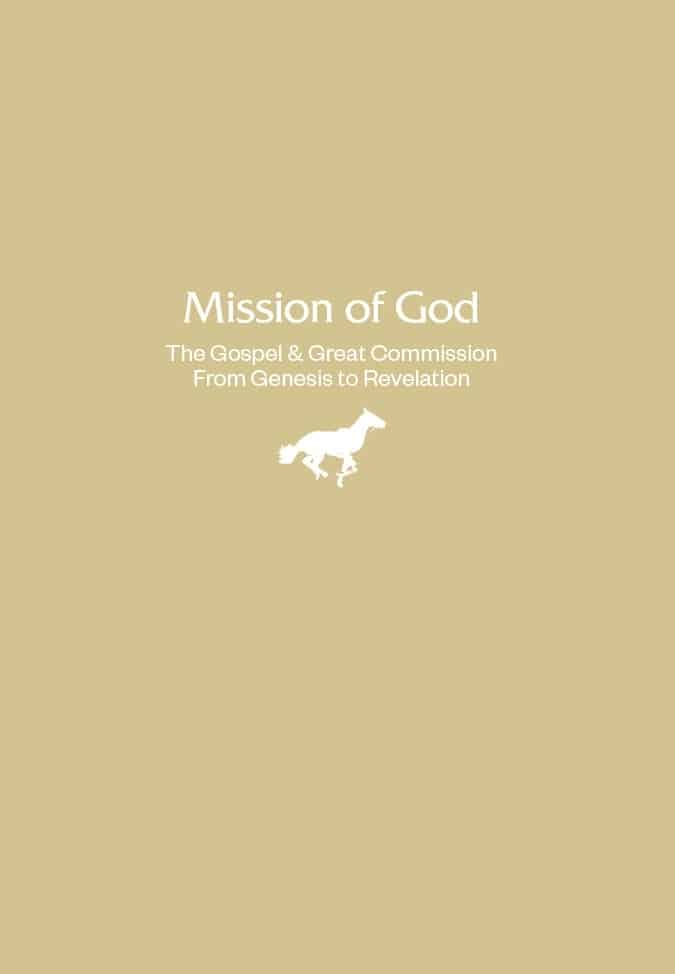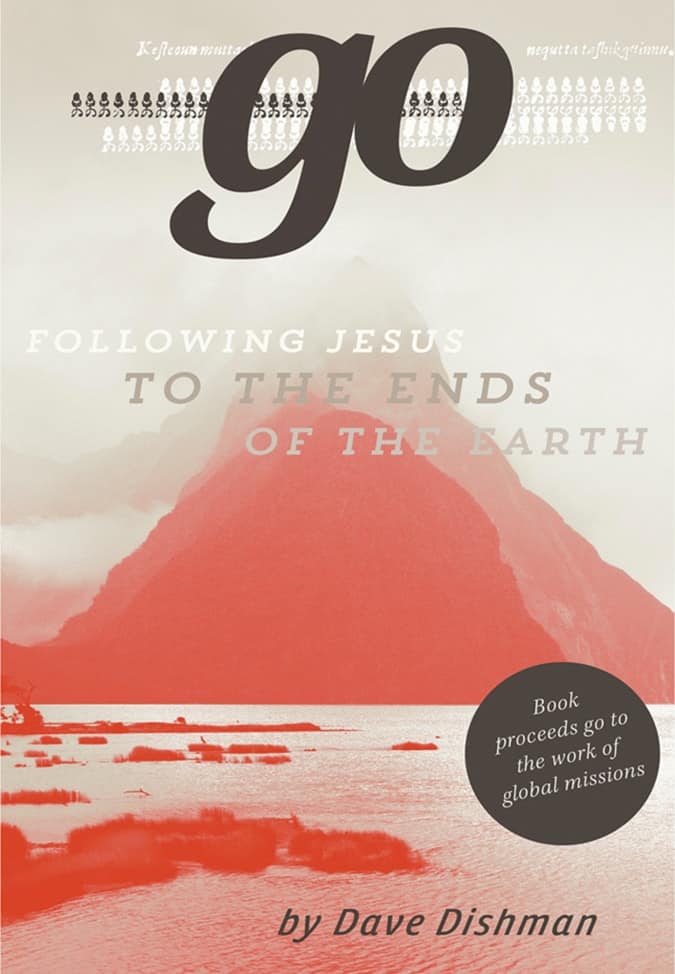The Historic Role of Young People in God's Global Plans
To fully understand what God has been doing in His global plan of redemption we need to take a trip to the local university and attempt to grasp the import of missiologist David Bryant’s statement:
God’s concern is worldwide. How the church has responded to that mandate is also clear in the light of history. All too frequently the Church has fallen into lethargy in relation to its world-wide obligations. But God does not leave Himself without a witness. Whether it be a Nicolas Von Zinzendorf, a Samuel Mills, a C.T. Stud, a Robert Wilder, a John Mott, a Jim Elliot or a hundred others who could be named, God singles out a man to prophecy to His church. And with remarkable frequency that man has been a student.In one sense this shouldn’t surprise us. When we think of the great heroes of the Bible it’s easy to forget that many of them were just recently over the throws of puberty when God began to work in their lives. Mentally go back through the Scripture. Think of men such as Daniel, Joseph (of Genesis), David, Gideon, Samuel, Solomon and Josiah. When God called them they had barely begun to shave, which I suppose is a moot point as ‘clean-shaven’ was not a desired look for Jewish men. Think of women like Ruth, Ester and Mary the mother of Jesus, none of them could get into an R rated movie, which is another fabulously moot point. Quite typically God initiated his plans through the youthful zeal and passion of young men and women.
Yet God using young people is one thing, using the university seems quite another. Bested only by the brothel, casino and communist party, the college campus is notorious for being one of the most godless and atheistic institutions on the planet.
As such we would assume that God’s redemptive plans would have bypassed the worldly city, but instead it became the capital of the missionary enterprise, a commuting hub, transporting the gospel and shuffling kingdom workers to their points of origin all over the planet. As we’ve noted, young people have always been the concentrated focus of God’s redemptive activity, but with the rise of the university, starting in the middle ages, that focus shows up in his work on campuses and in the lives of students.
Starting in the middle ages, church history generally recognizes four historical precursors to modern— biblical—evangelical Christianity: four spiritual movements responsible for our current progress in the fulfillment of the Great Commission. In light of what we’ve been talking about it should not be surprising that all four of them are foundationally connected to the University and to college students. In other words, in modern history the campus has been God’s primary vehicle for advancing the Great Commission. To see this clearly we’ll look at each of the four spiritual impulses and mark the centrality of the campus to each.
THE REFORMATIONWhatever your denomination, and whether Catholic or Protestant, the Christian life we enjoy today would not exist if not for the Reformation of the early 16th century. If you remember your history the medieval church had gone to some significant excess. In a storyline reminiscent of Monty Python and the Holy Grail, the Church had sought to expand Christ’s kingdom through Crusades, and funded these military excusrions through the sale of indulgences: salvation of self and loved ones extorted through cash payments of rubels, drachmas, sixpense or what have you—putting eternal security as close as the nearest ATM. In the early 16th century it was church reformers such as Luther, Zwingli and Calvin, who challenged and fought against the feudal errors and doctrinal perversion of a church suffering from the political and moral corruption of a failed marriage between church and state.
Well where best to challenge the establishment, protest the government, chant choruses of rebellion, and rally passionate young independent thinkers then the college campus (I’m sure students were more easily rallied during midterms). And so this reform movement would be mounted and mobilized from the universities of Wittenberg, Geneva, Zurich, and Toulouse (among others), the leaders of the Protest (Protestant) being the professors, clerics and students of the universities.
Fittingly, the warning shot of war, fired across the bow of the Roman juggernaut, was a list of 95 thesis (read grievances) against the church, posted on the oak door of the castle church in Wittenburg. And it was posted here because its author, Martin Luther, was the professor of theology at the University of Wittenburg. What would engulf Europe for the next century and forever change history, began here on the college campus.
THE PURITANSThe second historical impulse of modern Christendom is yet another reform movement, this one flowing from malcontent with the institutional Church of England. The architect of Anglican Church was King Henry the Eighth, who constructed it in order to house his seven wives, which the Roman church would not have tolerated. The Puritans of the early 17th century were a spiritual reform movement within the Church of England, and I’m guessing you already know, headed to the New World to locate freedom of worship, as that freedom could only be celebrated in the dungeons of England. Upon colonizing America, the Puritans would proliferate their teaching and religious zeal as well as train their godly leaders through the establishment of colleges such as Yale, Harvard and Dartmouth.
It’s rather instructive to read the first mission statements of these institutions. Founded in 1636, Harvard’s original stated purpose for its students was: “To be plainly instructed and consider well that the main end of your life and studies is to know God and Jesus Christ....” One requirement of students was that “Everyone shall so exercise himself in reading the Scriptures twice a day that he shall be able to give an account of his proficiency therein.”
One of Yale’s requirements for its students read as follows: “Seeing that God is the giver of all wisdom, every student, besides his private and secret prayer, will be present morning and evening for public prayer.” And, perhaps most comical of all, is Princeton’s founding statement: “Cursed is all learning that is contrary to the cross of Christ.”
Over the centuries, even long past the apparent expiration date on their stated charters, thousands of young pastors and missionaries would walk out the doors of these institutions with a diploma to preach the gospel and fulfill the Great Commission.
THE PIETIST MOVEMENTThe Pietists of the mid 17th century, are the third branch on our spiritual family tree. Though relatively unknown, this spiritual renewal movement was birthed in the German universities of Leipzig, Württemburg and Halle, through Christian professors like Philipp Spencer and August Franke who turned their classrooms into collegia pietatis (‘Colleges of Piety’ that focused on Bible study, prayer and accountability) and their students into committed disciples.
The most renowned member of this movement was a man named Count Von Zinzendorf who was a student of August Franke. As a teenager at Halle Academy, he and several other young nobles formed a secret society, The Order of the Grain of Mustard Seed. The stated purpose of this order was that the members would use their position and influence to spread the Gospel, specifically that they would: Be true to Christ; Be kind to all people; and Send the Gospel to the World.
This secret Order of committed disciples only became known when a Prussian soldier, and member of the society, died. Upon a search of his personal effects came the discovery of ring bearing the Greek inscription “No man Liveth unto Himself.” This was the motto of the Order expressing its commitment to be leaven among all Christians and to labor
for the salvation and fellowship of all regardless of denominations. As an adult, Zinzendorf had reactivated his adolescent society, and added to its membership some of the most influential Christians in Europe and America. Included among those bearing the ring and mark of membership in the order were the King of Denmark, the Archbishop of Canterbury, the Archbishop of Paris, the Secretary of State for Scotland, and the governor of Georgia.
The Pietist movement bequeathed to the Christian world the small group Bible study, mass printing and distribution of the Bible, modern missions, the conversion of John Wesley, and a 24/7 prayer Movement, that began in August of 1727 and encompassed every minute of every hour of the next 100 years. And did I mention this all began with two professors, a couple Universities and a handful of committed students. It did.
THE GREAT REVIVALS AND AWAKENINGSThe last major source is the Great Awakenings and Revivals of the 18th and 19th and 20th centuries which was discussed in some detail in the last chapter. Like their distant grandchild, the Billy Graham Crusades of the 20th century, these meetings brought together believers from many denominations to parner (inter-denominational) for the purpose of evangelism and spiritual renewal. The spiritual leaders of these Awakening were invariably college students.
THE FIRST GREAT AWAKENING (1726-1756)It was at Oxford University, in the early 1730’s, that John and Charles Wesley, along with two other students, began to meet together three or four evenings a week to pray, fast, study Scripture and discuss their spiritual lives. The group was known on campus as the “Holy Club,” which was hardly meant as a title of respect and admiration. Though ridiculed the community slowly grew, running in size between ten and fifteen students, and was eventually joined by a young student named George Whitfield.
While perhaps not making a cataclysmic impact on Oxford, the groups leaders would certainly make one upon England and the U.S, as the Wesley’s and Whitfield became the lightening rods of the First Great Awakening. Wesley would found the Methodist movement (now 20 million members), preach an estimated 46,000 sermons, write over 400 books and pamphlets and see thousands come to Christ.
George Whitfield on the other hand preached a mere 18,000 sermons. But Whitfield was the pioneer of outdoor preaching (it was previously unheard of to give a sermon outside of a church) and being blessed with a megaphone for a voice, he was able to make up the 28,000-sermon surplus of his friend John Wesley, with crowds that swelled as high as 30,000. It is estimated that he preached the gospel to some two million listeners (a number that gains more meaning when you consider a colonial population of one million at the time).
THE GLOBAL AWAKENING (1900-1939)The Global Awakening also traces back to college students. A young man named Evan Roberts. Roberts, as a student at Newcastle Emlyn College in Wales, had a profound encounter with God as over a series of months he began to pray for revival:
For a long time I was much troubled in my soul and my heart by thinking over the failure of Christianity...But one night after I had been in great distress about this, I went to sleep, and at one o’clock suddenly I was awakened up out of my sleep, and I found myself with unspeakable joy and awe in the very presence of the Almighty God. And for the space of four hours I was privileged to speak face to face with him as a man speaks face to face with a friend. At five o’clock it seemed to me as if I again returned to earth...And it was not only that morning but every morning for three to four months....and I knew that God was going to work in the land and not this land only, but the world.These nighttime prayer vigils were also accompanied by recurring visions in which Roberts felt God communicating to him that 100,000 souls would be saved in an imminent revival about to sweep Wales. (The fact that it happened certainly seems to accredit the visions).
Impassioned by his prayer and vision, and with the permission of his college principal, Roberts left his studies and went home to the village of Loughor to preach his first sermon. Apparently God had not given an accompanying vision to his Pastor who only reluctantly allowed Roberts to preach after the Wednesday night service to any who might choose to stay after and listen. And so his first message was preached to a sparse crowd of only seventeen and consisted of four simple points: confess any known sin to God and put right any wrong done to man, put away any doubtful habit, obey the Holy Spirit promptly, and confess faith in Christ openly. Roberts described the event:
At first they did not seem inclined to listen: but I went on and at last the power of the Spirit came down...The spirit did indeed come down. Two women were overpowered by God’s Spirit and began shouting. Roberts, himself was overcome with awe, as people started yelling, “No more, Lord Jesus, or I die.” Others cried for mercy, wept, sang and praised God. This together with “the sight of many who had fainted or lay prostate on the ground in an agony of conviction” was according to historian Eifion Evans “as unbelievable as it was unprecedented.”
From that meeting, and that college student, word spread throughout Wales and so did the awakening, Roberts did see 100,000 people come to Christ, and as the revival spread to much of the known world an estimated 20 million came to Christ
CARRIERS OF THE GOSPELStudents were not only the leaders of these revivals but the Universities themselves became like cell towers, transmitting the gospel and revival from campus to campus, and from the campus to nations all over the world.
Take for example the student revival of Williams College, in 1806, led by the student Samuel Mills. As that revival that spread across Williams College in moved on to Yale, Amherst, Dartmouth, Princeton, and other campuses across New England leading to the conversion of a third to one half of the total student bodies.”
But the revival not only jumped from campus to campus but from the campus to another nation: A Hawaiian student named Henry Obookiah, happened to be at Yale when the revival spread from Williams College to New Haven. It was at Yale that Obookiah came in contact with Samuel Mills who happened to be visiting the campus. As a result of their meeting, in 1820, a small party of student missionaries set off for Hawaii, then part of the Polynesian kingdom. Within fifteen years (1836) these young missionaries had planted seventeen churches among the islands, which, as it turned out, was only the preliminary work, for in 1837 the Hawaiian Great Awakening occurred, which saw the conversion of a fifth of the island’s population (27,000 converts).
And this all traces back to a campus, Williams College, and to students.
THE FEW, THE PROUD, THE COLLEGE STUDENTThis is the campus centered spread of the gospel we witness in church history and helps us to understand why Bryant would say:
Whether it be a Nicolas Von Zinzendorf, a Samuel Mills, a C.T. Stud, a Robert Wilder, a John Mott, a Jim Elliot or a hundred others who could be named, God singles out a man to prophecy to His church. And with remarkable frequency that man has been a student.In the great battle to expand the Kingdom of God to the far reaches of the globe, God has used college students as the marines and the campus as the recruiting station and training center from which to launch an invasion. And with that I’ll surrender the use of the military analogy.
Campus Ministry, then is not the brainchild of any person or organization, it is a ministry
based on the observation that in the last four centuries God has used the campus as his primary vehicle for fulfilling the Great Commission. A closer look at the dynamic of the University and of college students may shed some light as to why God has chosen to focus his global plans here, and why so many Christian organization invest their resources, harvesting on the campus as opposed to other places, people, and segments of society.
In a recent book analyzing the way ideas and communications spread (The Tipping Point), Malcom Gladwell gives the following example:
In 1994 the brand known as Hush Puppies was selling at the dismal rate of 30,000 pairs of shoes a year. Wolverine, mother company of Hush Puppies, was in the process of eliminating the shoe that had made them famous—perhaps a decision that would have been applauded by many.
But then something very strange happened in Manhattan. In a few Soho nightclubs, college age trendsetters began wearing Hush Puppies because, well, just...because. Within months partiers all over Manhattan were sporting them—like a virus the Hush Puppy “buzz” was spreading everywhere. In the fall of 1995 designer John Bartlett called Hush Puppies wanting to use them in his Spring Collection. Then Manhattan designer Anna Sui called wanting them for her fashion show as well, and the next thing you know Pee Wee Herman is wearing them in a movie.
By 1995 the Hush puppy virus had turned into an international plague; the company sold 430,000 pairs and the following year nearly 2 million. And, get this, in 1996 Hush Puppies won the prize for the best accessory at the Council of Fashion Designer Awards, the president of Hush Puppies sharing the same stage with Calvin Klein and Donna Karan to accept the award.
Gladwell asks and answers the question “How did this happen?” The answer is that ideas spread with the same dynamic of a virus, and college age students are the ideal “carriers,” able to turn a simple “outbreak” into a global epidemic.
But it’s not just fashion; a simple survey of some of the most significant trends and shifts in the realm of ideas, art, music, politics (the 60’s for example), and religion, seem to point back to handful of college students who were able to take an idea and spread it globally, making the world stand up and take notice.
Which is why the motto of Cru, as well as other campus ministries, has always been “Reach the campus today, reach the world tomorrow.” It is based on the observation that if students take seriously the command of Christ to take the gospel to all nations, unlike any other group of people, they have the capacity to accomplish the task.
A SEAMLESS MISSIONS STRATEGYIf you were to ask any missionary what is the most needed resource to fulfill the Great Commission and take the gospel to the world their answer, almost unanimously, would be ‘people’. The gospel is powerful but it cannot provide its own transportation. I mean, I suppose God could have made it self-propelled (omnipotence has its priviledges) but he choose to use people, us, to be the messengers
Now consider the genius of God, in addressing this need for labroers through college students:
Today’s college students have nearly four months a year allotted for summer break. What this provides is an enormous temporary labor force that can be utilized by McDonalds or more strategically for short-term missions. Think about it: when will adults ever have four months free of commitments where they could travel to another country and pioneer a new ministry? Well, anytime they want
if they don’t mind getting fired, but if they want to retain ther job and feed their family then the answer is never.
Now add to this, another sovereign open door that students provide. There are countries where it is almost impossible for missionaries to gain access. Muslim countries, for example, do not usually provide a rich welcome for incoming evangelists. But college students, with a student visa, can travel to virtually any country in the world, enabling them to bring the gospel to countries where missionaries cannot go.
There is a final, providential, twist to this scenario. A common obstacle to foreign missions is the time required to learn a new language. However, on the college campus—this being the most educated strata of society—students often speak multiple languages, and most can communicate to some degree through English, allowing students to share their faith without a language barrier.
So a group of students, free of commitments for several months, can go into a closed country with their student visas, share Christ without a language barrier, and when they leave some members of the team can remain behind—audit a class— and continue to disciple new and young believers.
What you have here is a seamless missionary strategy to reach the world, an army of volunteers to help fulfill the Great Commission.
THE POWERFUL PERCENTHaving received a fellowship to Magdalen College at Oxford, this young atheist quietly wrestled with the meaning of life:
“Christianity, if false, is of no importance, and, if true, of infinite importance. The one thing it cannot be is moderately important.”In his days on campus he made significant relationships with Christians who indelibly influenced his life and thought. Writing in a letter to a close friend he remarked, “had a long satisfying talk” with two Christian friends “I learned a lot.” The spiritual journey continued for several years until C.S. Lewis, with the help of his two friends (Hugo Dyson and J.R.R. Tolkien), would finally mark his conversion.
“In the Trinity Term of 1929 I gave in, and admitted that God was God, and knelt and prayed . . . . The hardness of God is kinder than the softness of men, and His compulsion is our liberation.”Lewis would go on to write more than 30 books, and become one of the most influential Christians of the century, touching millions through his writings.
Did you ever consider that the student sitting in Sociology 101 may be the next C.S Lewis, Colin Powell, or Bill Gates—the guy on the wrestling team the next Mother Teresa. OK, bad example, but you see the point: on the campus today is the next generation of social, religious, corporate, and political leaders of this country, as well as the world. Right now there’s a future president, somewhere, sitting down to a plate of dining hall food. If they are reached with the gospel now, as college students, the influence they could have for Christ in the world is staggering to consider.
While college students comprise only 1% of the world’s population they are in fact the powerful percent. In any given country, the religious, athletic, military, social, political and scientific leaders will all come from within this 1%.
To reach the campus with the gospel is to effect the entire country, and so perhaps this
is why the campus has occupied such a central place in God’s salvation plans.
As legend has it, Apple Computers were started in the 1970’s by two guys, Steve Wozniak and Steve Jobs, working in a garage. (Though such grassroots beginnings seem to be a universal claim by all technology companies, in this case it was actually true.) Wozniak was the technical genius, Jobs the visionary. Jobs had a vision of literally changing the world with what he considered “insanely great” computers.
To implement this dream, Jobs sought to recruit John Scully, then President of Pepsi Corporation. Jobs met with Scully, giving him his pitch to come work with Apple, but the Pepsi executive wasn’t willing to leave behind his future of power, prestige, and money. Not willing to accept a “no,” Jobs looked at Scully and said, “Do you want to spend the rest of your life selling sugared water, or do you want a chance to change the world?” With that question ringing in his ears, Scully left Pepsi and came to work for Apple.
Ironically years after the success of Macintosh, Steve Jobs gave the following interview in Wired magazine:
“Steve, What is the biggest surprise this technology will deliver?”“The problem is, I’m older now, I’m 40 years old, and this stuff doesn’t change the world. It really doesn’t. That’s going to break people’s hearts. I’m sorry, it’s true.”Everyone wants there life to have meaning and purpose, but no demographic feels that stronger than college students. And when they embrace Christ they embrace Him with a zeal you simply don’t see in other age groups. This is the time where people get serious about there faith. This is the time where disciples are made. This is the time where students engage in the labor of ministry to fulfill a driving thirst to live a life of meaning and purpose. And this is why the campus has produced Christendom’s most passionate missionaries.
A TIME OF DECISIONIt’s March 1991 and a Finnish student at the University of Helsinki looks like he hasn’t slept in months. He hasn’t. Night and day for six months he’s been designing a new operating system that, unlike Windows, never crashes. He now has a major choice: who to sell his system to? Only he doesn’t make that choice at all. Instead Linus Torvalds chooses to give his creation away and, in the same moment, revolutionizes not only the field of technology, but economics as well.
Between the years of enrollment and graduation, students will wrestle with most all of life’s major choices and, for bad or good, come to decisions. The choices they make will not only shape themselves, but contour the world we live in, as the decisions made during these critical four years, will set the trajectory for the next sixty.
Decisions about lifestyles: to drink, to have sex or abstain, to binge—purge, indulge, experiment.
Decisions about career: selecting majors—changing majors, graduate schools, internships, choosing employers, locating in cities.
Decisions about relationships: friends, boyfriends, girlfriends, parents, marriage, living together, sex, pregnancy, abortion.
College is also the time where decisions are made concerning God, as the vast majority of people who come to Christ do so before the age of 21. This is the time when students decide for themselves what they will believe, if they will embrace the faith of there parents, their lack of faith, or find a new faith. This is an unprecedented season of openness: the time to reach people the gospel. Once this window of opportunity closes, hearts and minds become difficult to penetrate. It is perhaps for this reason that God chooses this age and this location to touch the lives of individuals.
A TIME OF CALLINGPastors serving Christ under communism, church planters in South America, evangelists in Asia, missionaries to the Muslim world: trace back the spiritual journey of today’s most influential Christian leaders and you’ll find that many of them, most of them, came to be where they are due to involvement with a campus ministry.
Which leads to an important question: from where will the next generation of Christian workers, pastors, and missionaries come? From college ministries around the world.
This is why Campus missionaries devote their effort to praying for God to raise up laborers from the campus. In fact many campus ministers, desiring to serve internationally, have remained on campus knowing that every year they remain they will multiply themselves many times over in laborers for the spiritual harvest.
Consider for example Roger Hershey, former Campus Director of Miami of Ohio: on his wall is a map with over 500 pins placed in locations all over the world. These pins represent the students that have been involved in his campus ministry and now serve as pastors and missionaries around the globe. In raising up these laborers, Roger’s ministry and influence now extends to the hundreds of ministries begun by his disciples and hundreds of thousands reached with the gospel, making Roger’s impact for Christ beyond calculation. Can you think of another church or ministry that sees this degree of influence for expanding the kingdom of God?
The campus continues to hold the answer to Jesus' prayer that God would “send out workers into his harvest field.”
DRAWN TO CONCLUSIONWe have observed that in the history of God’s global plan of redemption he has often tasked young people with a starring role in the drama. This is true throughout scripture and we have seen its constancy throughout church history. We also did some detective work on why that might be, but it is, in the end, speculation. We don’t know for sure why God has chosen to use college students as his primary movers of the gospel, we only know that he has. And that as we look to see the Great Commission fulfilled it would not be a huge presumption to suggest that college students will probably be at the center of it. You could be at the center of it.
© 2010, CruPress, All Rights Reserved. CruPress.com









